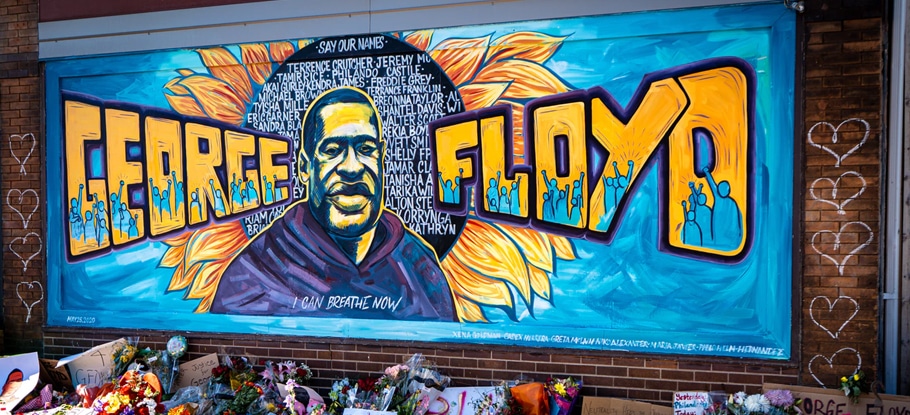The following is a guest post by Dr. Chris King who serves as pastor of Bayou View Baptist Church in Gulfport, Mississippi.
The Roman Governor Pilate committed a horrible atrocity against the Jews. While they were worshiping, he apparently had some of them killed (mingling their blood with their sacrifices). People in the crowds following Jesus wanted Him to address this act of government oppression and injustice. History confirms the political tensions between the Jews and the Romans, and the crowd wanted to hear how Jesus would respond to this massacre.
Luke records this conversation in 13:1-3, where Jesus provides a two-fold response. First, He addresses a common misunderstanding—that these people suffered because they were “worse sinners” than others living in Galilee. The Lord asks the question, “Do you think that these Galileans were worse sinners than all the other Galileans, because they suffered in this way?” The intended answer to this rhetorical question is, “No, they did not suffer because they were worse sinners.” Implicit in the question seems to be the idea that these people died because of some sin they had committed. With this response, Jesus clarifies how everyone is sinful and guilty before God.
Secondly, Jesus says to the crowd, “…Unless you repent, you will all likewise perish.” The call for sinners to repent marked the ministry of Jesus Christ. Matthew 4:17 records, “From that time Jesus began to preach, saying, ‘Repent, for the kingdom of heaven is at hand.’” Why doesn’t Jesus answer the crowds’ questions about the atrocity committed by Pilate? Because a more serious and pressing issue needs to be addressed—the fact that all sinners need to repent. Jesus’ mission/purpose deals with the grave spiritual needs of mankind (Luke 19:10), not temporal issues related to government oppression.
Jesus also highlights the consequences facing those who do not repent—they will “all likewise perish.” [1] By using the word “all,” the Lord underscores the imminent danger of everyone in the crowd (and the world). The crowd focuses on those who had died under Pilate’s hand. Jesus focuses on the need for all the living to repent.
What can we learn from Jesus’ responses?
First, Christians need to recognize the pervasiveness of sin. Jesus’ initial response highlights the universal sinfulness of mankind (as a legion of other Biblical references will confirm). The Lord indicates the crowd shares a dire problem with those murdered by Pilate. But they didn’t seem to recognize it. The crowd was more concerned about the evil Pilate had committed (and what should be done about it) than their own spiritual plight. Jesus cuts to the deepest problem—the curse of sin that afflicts all people.
When people point out the myriad of injustices in our world, we should remind them how we’re all guilty before God because of our sin. People often point out the sins of others without taking account of their own guilt before a holy God. As Christians, we should direct people’s attention to the most serious concern facing the world—people are “condemned already” before God (John 3:18). As depraved acts unfold before us, it provides us with a potent opportunity to explain the universal and ongoing sinfulness of all mankind. People clearly recognize injustices and the effects of sin in our world. This affords us an opportunity to point people to the Gospel.
Second, we need to emphasize repentance as the response to the reality of sin. Jesus calls sinners to repent, Christians should be calling sinners to repent. The Lord has not commissioned Christians to answer every question about injustice in our world. Later in his Gospel, Luke makes clear what His followers should be focused on doing: “…Repentance and forgiveness of sins should be proclaimed in His name to all nations…” (Luke 24:47). Like Jesus, Christians should be more concerned with calling sinners to repent than trying to explain the continuous cycle of evil acts in the world.
Repentance is a response to the Gospel of Jesus Christ. Talking to people about sin and repentance gives Christians the opportunity to clearly explain the Gospel. We can share the good news of what God has done by sending His Son to die for our sins and be raised from the dead. We can joyfully explain how all their sins can be forgiven because of the sacrifice of Jesus Christ. To be forgiven of sin and guilt, we must repent and trust in Christ alone. When people ask questions about how God could allow an atrocity, like Jesus, we should ask them if they’ve repented of their sins.
Third, we need to clearly express the severe consequences of sin: if people don’t repent, they will perish. This gives us another opportunity to explain the Gospel. The Gospel offers eternal life to the perishing (John 3:16). When crowds highlight the evils propagated by others—we should turn their attention to the fact that all who do not repent will perish.
In his ministry, Jesus does not typically address the atrocities and injustices carried out by the Romans or other governmental authorities. He deals with far weightier issues like the universal sinfulness and guilt of mankind, and the pressing need for repentance. Luke 13:1-4 provides one of the many examples of His concentration on the eternal and spiritual needs of mankind. He focuses His ministry labors on preaching God’s Word, making disciples, and fulfilling what the Scripture promises about the coming Christ.
How should Christians respond to evils and atrocities carried out in our day? I suggest we follow the model set forth by Jesus Christ: expose the universal reality of sin, call sinners to repent, and make clear the peril facing the unrepentant. Christians should use the tragedies of this world to point hurting people to the good news of the Gospel. Christians have good news to offer a world full of injustices.
- Paul also highlights the importance of repentance in his preaching of the Gospel (Acts 17:30; 20:21; 26:20).




